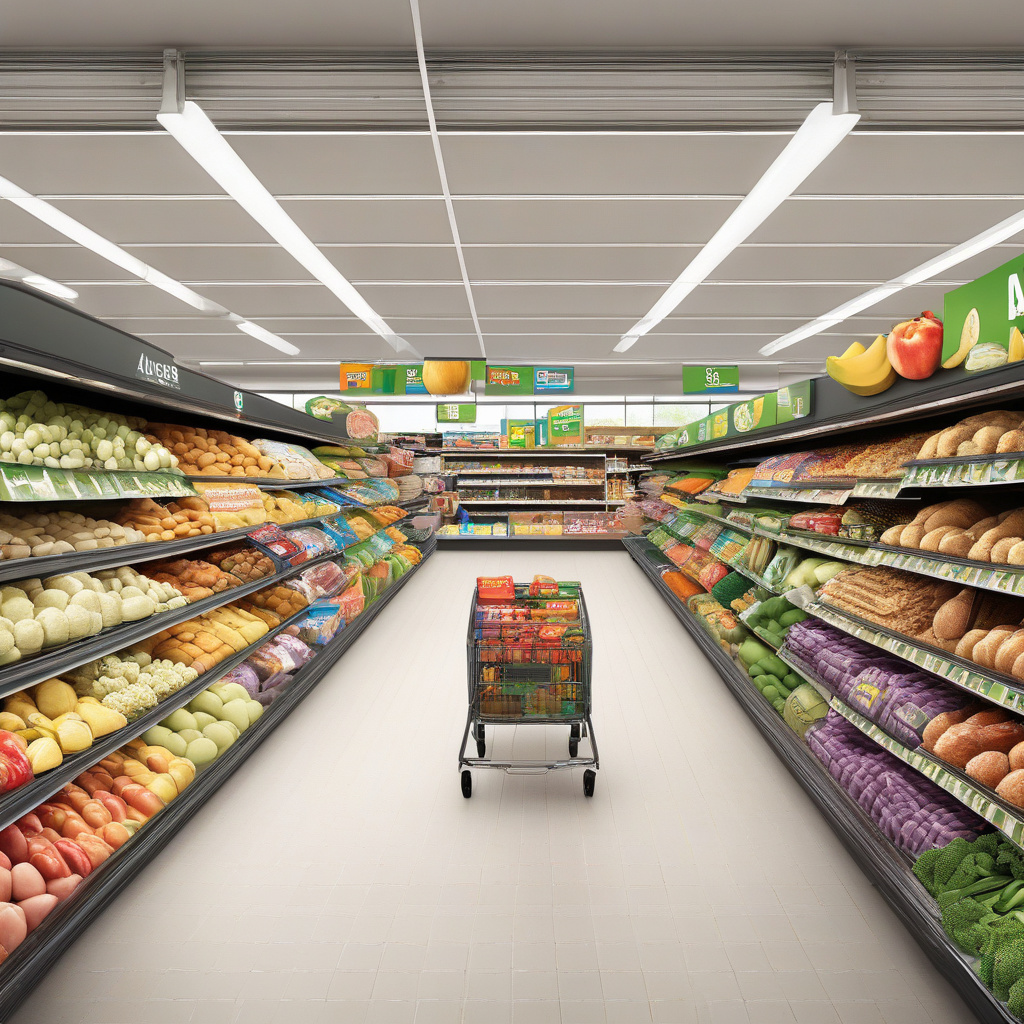Aldi Surpasses Asda on Food and Drink Sales for the First Time
In a significant shift within the UK grocery market, Aldi has officially surpassed Asda in food and drink sales, marking a pivotal moment for both retailers. This milestone not only showcases Aldi’s rapid growth but also highlights the ongoing challenges faced by Asda, a supermarket chain that has long been a staple in British households. The rise of Aldi in this competitive landscape raises questions about consumer preferences and the strategies that traditional retailers must adopt to stay relevant.
Aldi’s ascension in sales comes at a time when consumers are increasingly seeking value for money, particularly in the wake of economic pressures such as inflation and rising living costs. The German discount supermarket chain has built its brand on the premise of providing high-quality products at lower prices, which resonates strongly with budget-conscious shoppers. Reports indicate that Aldi’s sales have surged by 18.7% in the past year, a remarkable achievement that underscores the effectiveness of its business model.
Conversely, Asda has struggled to maintain its market position amid fierce competition from both discount retailers and online grocery services. Once a dominant player in the UK supermarket sector, Asda is now grappling with declining sales and a tarnished reputation. The supermarket chain’s recent challenges can be attributed to various factors, including a lack of innovation in product offerings and an inability to adapt swiftly to changing consumer habits. Asda’s failure to compete effectively with Aldi’s low-cost strategy is further evidenced by the latter’s growing market share, which now stands at approximately 10% compared to Asda’s 14%.
One of the critical elements contributing to Aldi’s success is its streamlined supply chain and efficient operational model. Unlike traditional supermarkets, Aldi operates with a no-frills approach, which allows it to keep costs low. The company focuses on offering a limited range of private-label products, which not only enhances its profit margins but also ensures that customers receive quality goods at competitive prices. This strategy has proven to be particularly effective during times of economic uncertainty, as consumers are more likely to switch to budget-friendly options.
Moreover, Aldi’s commitment to sustainability has also played a significant role in attracting a growing customer base. The supermarket has made strides in reducing plastic waste and increasing the availability of environmentally friendly products. This focus on sustainability aligns with the values of a modern consumer who is increasingly conscious of their environmental footprint. As Aldi continues to expand its eco-friendly offerings, it positions itself as not just a low-cost retailer but also a responsible choice for shoppers.
On the other hand, Asda’s traditional model appears to be faltering in the face of this new competition. The supermarket has been criticized for its lack of innovation and failure to address the evolving needs of its customer base. While Asda has made attempts to revamp its product offerings, these efforts have not been sufficient to retain its customer loyalty. The recent sales figures suggest that shoppers are increasingly opting for alternatives that provide better value, which poses a serious threat to Asda’s long-term viability.
The implications of Aldi surpassing Asda in food and drink sales extend beyond just these two retailers. This shift in market dynamics could signal a broader trend in the grocery sector, where value-driven shopping is becoming the norm. As consumers continue to prioritize affordability, traditional retailers may need to reconsider their pricing strategies and operational efficiencies to compete effectively.
In response to these market changes, Asda must prioritize innovation and customer engagement. Implementing loyalty programs, enhancing in-store experiences, and expanding online services could be vital strategies to regain market share. Additionally, Asda should consider investing in its private-label offerings to provide more competitive pricing and personalized products that cater to the diverse needs of its customers.
In conclusion, the news of Aldi’s surpassing Asda in food and drink sales serves as a wake-up call for traditional retailers. In a market where consumer preferences are rapidly shifting towards value and sustainability, companies must adapt to stay relevant. As Aldi continues to thrive, Asda faces an uphill battle to reclaim its position in the grocery sector. The future will undoubtedly be shaped by how these retailers respond to the changing landscape of consumer behavior and market dynamics.
retail, grocery, Aldi, Asda, market trends
